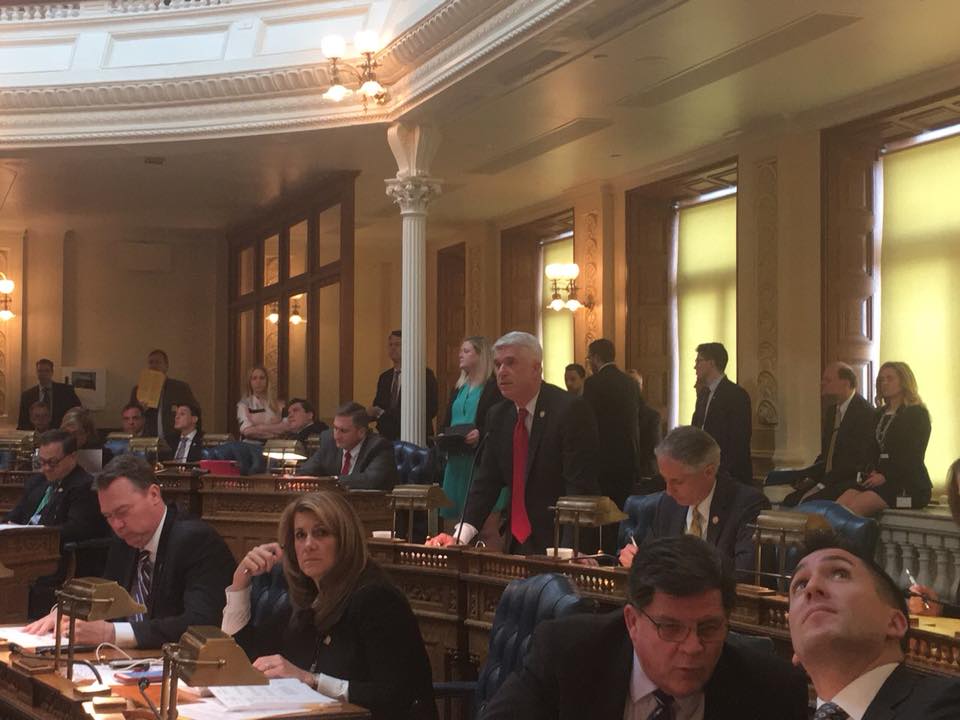Rooney bill holding Superfund polluters accountable heads to governor’s desk

Rooney bill holding Superfund polluters accountable heads to governor’s desk
TRENTON, N.J. – The Assembly today approved legislation sponsored by Assemblyman Kevin J. Rooney preventing the state from investing in companies that shirk their environmental cleanup obligations. Companies that intentionally file for bankruptcy to avoid paying for environmental remediation are targeted by the bill (S1208/A997), which passed the Senate in February and now awaits now heads to Gov. Phil Murphy’s desk.
“We can’t allow companies to walk away from environmental disasters and continue to benefit from investment by the state,” said Rooney (R-Bergen). “We will hold these irresponsible corporations accountable for poisoning our environment. The message is clear. They can’t poison the ground and water and walk away without consequences.”
Rooney drafted the measure in response to recent events related to the Diamond Alkali Superfund site on the Passaic River, and the EPA’s $1.4 billion remediation plan.
For several decades, the Diamond Alkali Company owned and operated a facility in Newark manufacturing agricultural chemicals including Agent Orange and the powerful pesticide DDT that it dumped into the Passaic River. The polluted area is now the Diamond Alkali Superfund site even though the company is now called Maxus Energy. Eating fish and crabs from the area is prohibited as a result of the contamination.
“Dumping hundreds of thousands of gallons of chemicals into the water has devastated the environment,” said Rooney. “It is nearly impossible for the chemicals to degrade on their own, but for nearly half a decade nothing has been done to clean it up.”
The EPA finally announced their remediation plan of the lower 8.3 miles of the river in 2016. The parent company of Maxus, known as YPF SA, intentionally placed its subsidiary into bankruptcy just months after the announcement.
When a company files for bankruptcy and no longer has the ability to pay for its environmental obligations, the site is classified as an orphaned site and the cleanup cost then falls on taxpayers.
Argentina’s state-run oil company is trying to avoid its liabilities and shift the cost of the cleanup onto the residents of New Jersey. Despite this, the New Jersey pension fund owns more than 860,000 shares of TPF, valued at approximately $18 million.
“New Jerseyans cannot be expected to clean messes made by those exploiting our system. Our state cannot afford it, and neither can our environment,” said Rooney.
“Companies should know we will hold them accountable for poisoning our environment,” concluded Rooney. “We need to stand up to them, and this bill ensures that New Jersey sends a clear message that irresponsible behavior and devious tactics like this will not be tolerated.”
# # #








